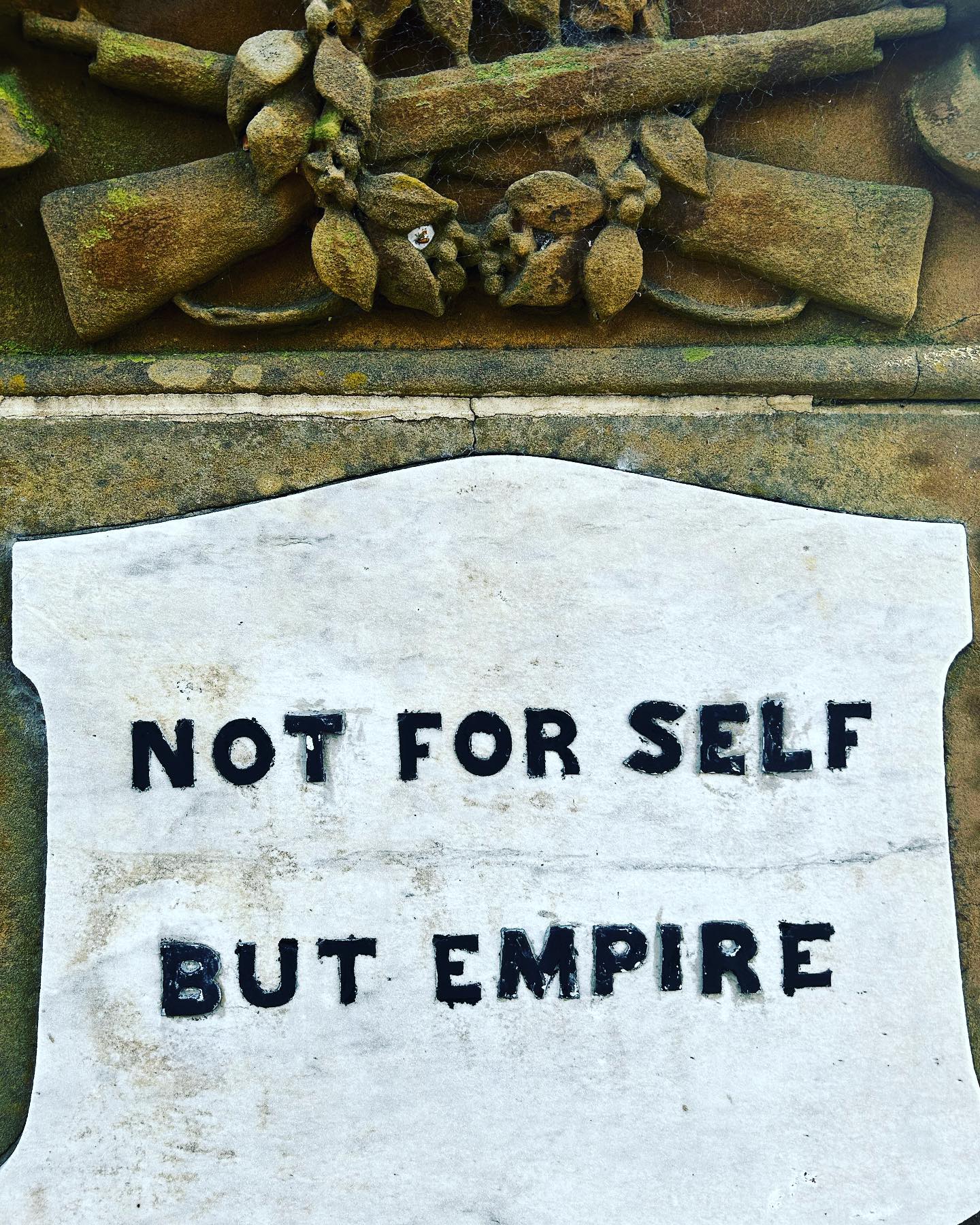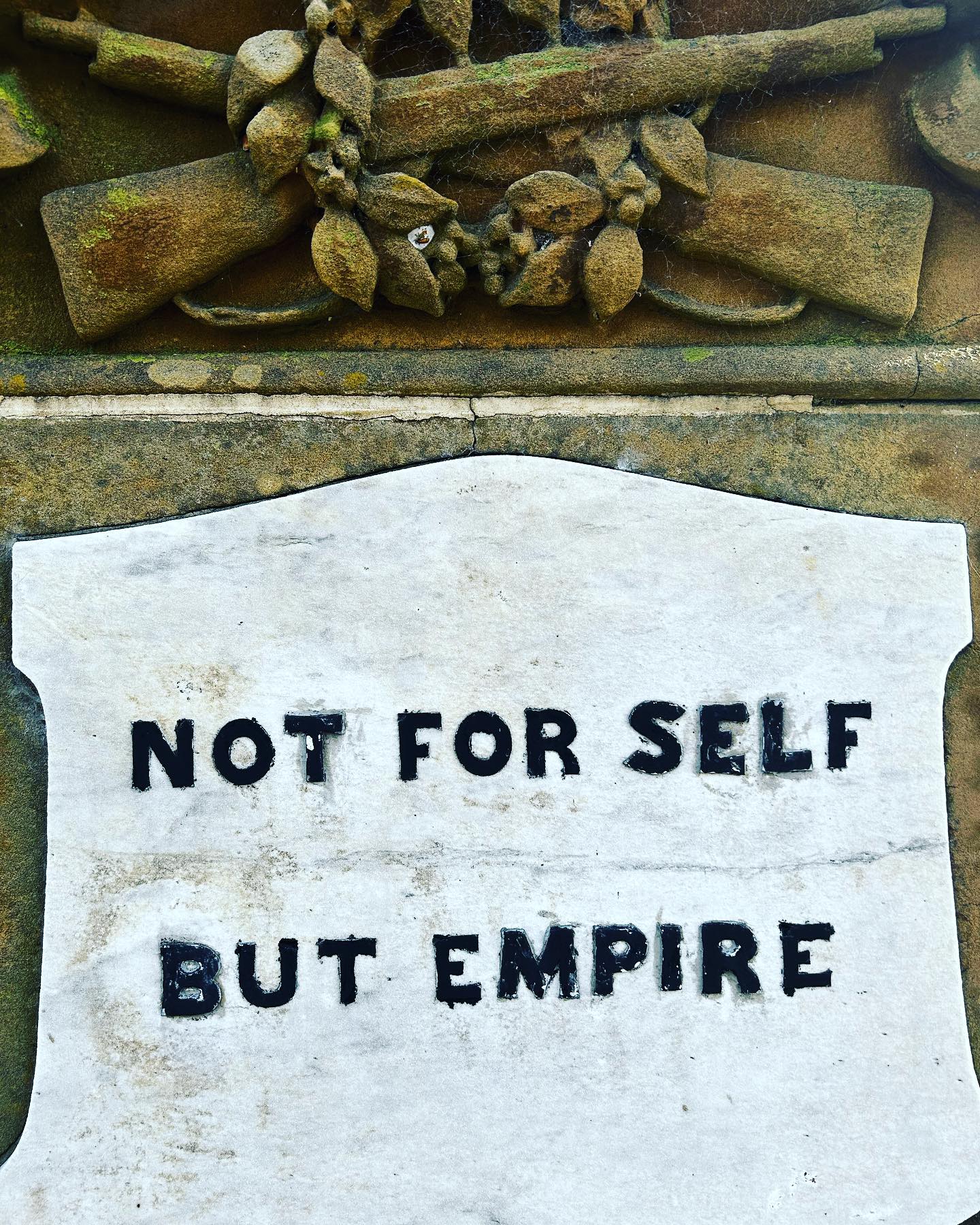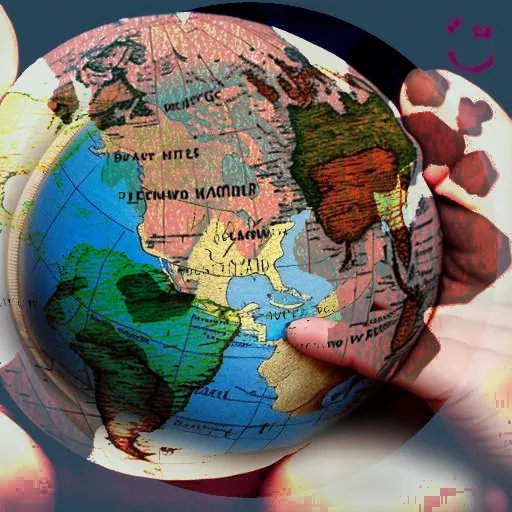
If the world is a thing we have made, then all things are in the world.
This first appeared on substack in June 2023.
we are human because we have meetings
The etymology of the word thing is more interesting than one might think.
Originally this usage meant "assembly", and this itself perhaps arose from a metonymic use when referring to the time appointed… —to decide or assemble. Later this happening then came to mean, again metonymically, a specific issue discussed at such an assembly, and ultimately came to mean most broadly "an object" of discussion, the matters put before us, and this came to be used for objects… —out there. And less as part of our considerable considerations.
[Compare Latin rēs, also meaning "legal matter", and same transition from Latin causa (“legal matter”) to "thing" in Romance languages. Modern use to refer to a Germanic assembly is likely influenced by cognates (from the same Proto-Germanic root) like Old Norse þing (“thing”), Danish ting, Swedish ting, and Old High German ding with this meaning.]
I always use thing as a type of meeting, as part of a relationship. This favourite thing is then metonymically used to refer to the embedded-ness of life in the world. Things, like a constant hang-over, are parliaments, often representative parliaments, with parties. Relationships are not always obvious. I say this as a Tasmanian.
Objective objects, by comparison, are part of an almost imperial worldview bereft of relationships outside of one’s place in the hierarchy. Empires of certainty.
And things have been colonised by objects. A pattern of abuse that is not always obvious. Patterns can or must hide in abusive relationships.
If the world is a thing we have made, then all things are in the world.
This is where we live.
We make things, even the real thing,
and it is in the making we forget
we have made our mark.
This mark is where we make the world,
a forgetry, a nursery of mistakes,
as we should.
So what are things we should
as we should along
in our lives,
those life-s of the party?In recent millennia, things have been objectified, and the doing of things involves perhaps less conscious meetings, less making a date to decide… ---things, and more a removal of things from the world we should, often in the name of glory or conscience.

Glory is the constant excuse when we turn to the reality of harder facts, that we now refuse to meet-with —as we deal with them, and in logic or obedience to a mechanical substrate (TINA) because we live by shoulding anyways, we just happen to should with reality rather than our our responsibilities, and so regardless, onward as we wait for…
“Shoulding” [into territories and landscapes with our bodies and worlds].
— the shoulding, in which violence clashes iron on bronze, and provides philosophy with Homeric examples of poetic making… analytic philosophers keep this violence as a dialectic Valhalla, even as they make a republic [res publica] a utopia-likely fit for emperors in the hard reality of hindsight which is already gone and dusted.
Reality does. Worlds make. As they should. We should.
Reality is a world without a care in the world. Even so, reality is put forward as the base that our worlds obscure, and we seek its primacy by logic-in-itself and experimentation, but it always comes to us, each and several, secondarily. Otherwise there would be no reality principle to speak of.
[Logic is hindsight. What has gone before, goes before we know it.]

A thing is a meeting, a thing is a relationship. Your mother is the world before you are two/too. Before the dyad. Before you make your first cry/scream/call/word/breath.
Already.
Mothers world as much or more than they can bear. You should see them work the day so that the child lives/survives/grows. Nurturing in making special child. Yes, the hunterer is also useful towards making the world/child become someone who faces reality in principle, and not retreat into narcissism.
That’s the thing.
Dissanayake, Ellen, ‘Doing Without the Ideology of Art’, New Literary History, 42 (2011), 71–79 : https://philpapers.org/rec/DISDWT-3
